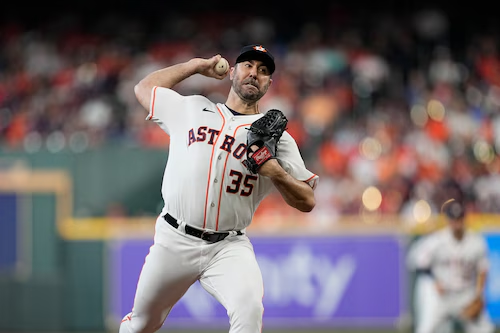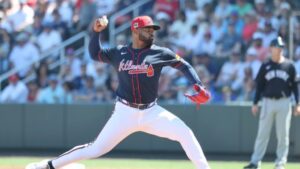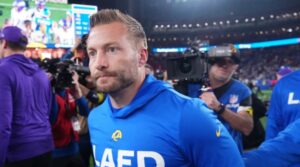
Amidst speculation that the struggling Houston Astros might contemplate a summer deadline selloff, there are doubts surrounding the possibility of trading right-hander Justin Verlander. Despite being in the final guaranteed year of his contract, Verlander’s full no-trade clause presents a significant hurdle. Last summer, when trade talks swirled involving the Dodgers, Rays, and Mariners, Verlander expressed his preference to stay with the Astros due to his affinity for the team. This sentiment suggests that he may be reluctant to waive his no-trade clause again.
However, the Astros’ current 12-22 record raises questions about their competitiveness, prompting considerations about Verlander’s future. At 41 years old, Verlander may prioritize contending for another championship over his attachment to Houston. While he has performed well this season with a 2.08 earned run average, the Astros’ diminishing playoff odds may influence his decision.
Verlander’s conditional player option for 2025 adds complexity to any potential trade discussions. If he reaches 140 innings pitched in 2024, he can exercise a $35 million player option for the following season. While his recent injury stint slightly reduces his chances of reaching this milestone, he has ample time to do so. Furthermore, a clause in the option protects clubs against significant injuries that might prevent him from being on the active roster in 2025.
Despite his age, Verlander remains a coveted asset, particularly with the Mets covering a significant portion of his salary. While his current statistics might not fully support his performance, his track record as a reliable starter makes him an attractive target for teams seeking pitching reinforcements.
Ultimately, several factors will influence the likelihood of a Justin Verlander trade. The Astros’ performance is a crucial consideration, with Verlander potentially remaining off the trading block if the team re-enters playoff contention. However, if the Astros continue to struggle, Verlander’s sentiments towards Houston may sway his decision, especially if he sees little chance of contention with the team.
Additionally, the Astros’ financial strategy could play a role in any trade discussions. They might choose between absorbing Verlander’s salary to enhance their return in prospects or offloading his contract to another team to alleviate their competitive balance tax burden. Verlander’s health and on-field performance will also be pivotal, particularly with his conditional player option looming.
Long-term plans for the franchise are another factor. Similar to Max Scherzer’s departure from the Mets last year, the Astros may face tough decisions if they anticipate a rebuilding phase. Impending free agents like Alex Bregman could become trade targets, while players like Kyle Tucker, Framber Valdez, and José Urquidy might be retained for another shot at contention or made available in trades to facilitate a reset. In such a scenario, Verlander’s desire to remain in Houston could wane, both for the remainder of this season and beyond.






